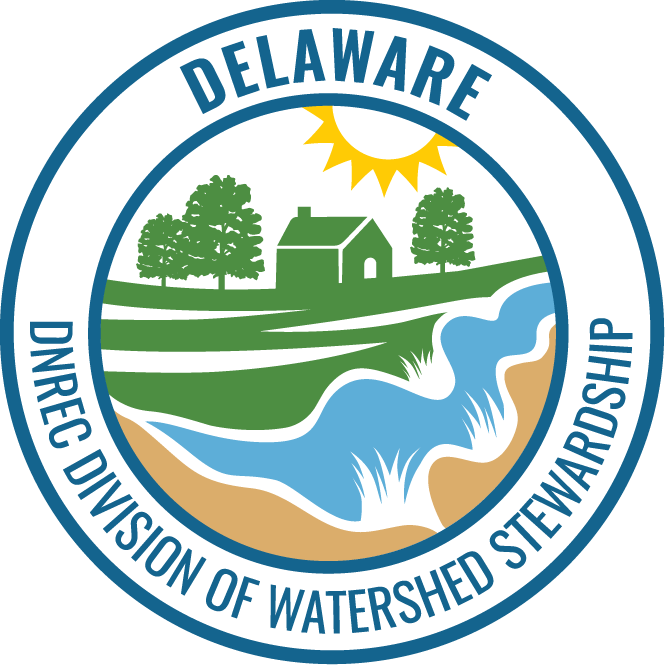
Facebook Twitter Instagram YouTube
Written on: July 15th, 2015 in Education and Outreach
By Brittany Haywood, DNREC’s Wetland Monitoring and Assessment Program
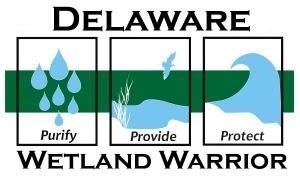
The Wetland Warrior Award is presented annually by our program to an individual or organization that has acted to benefit Delaware’s wetlands through outreach and education, monitoring, restoration or protection. This year we would like to recognize two recipients that have dedicated significant amounts of time and energy to protecting Delaware’s wetlands.
Douglas Janiec has been a professional working in Delaware’s wetlands since 1989, and is highly regarded for his work in performing wetland ecological risk assessments, effectively resolving wetland violations, and developing innovative stream and wetland restoration practices. Not only does he support Delaware’s wetlands while on the job, but he has also volunteered countless hours of his personal time.
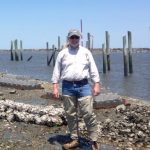
Thomas Draper and his family are voluntary stewards over one of Delaware’s most ecologically valuable wetlands, Coastal Plain Ponds or Delmarva Bays, which are one of seven unique wetland community types in Delaware. Tom and his son Hank are prime examples of landowners that are able to balance their agricultural production while actively maintaining and managing unique wetlands. Their efforts are shown by the rare plant and animal species that are thriving on their properties.

Douglas Janiec and the Draper family were recognized by Governor Markell and DNREC Secretary David Small on Governor’s Day, Thursday, July 30th, at the State Fair for their valiant efforts. We thank you for dedicating substantial and sustained energy, wisdom, and leadership in protecting Delaware’s wetland resources.
Written on: July 15th, 2015 in Wetland Restoration
By Brittany Haywood, DNREC’s Wetland Monitoring and Assessment Program
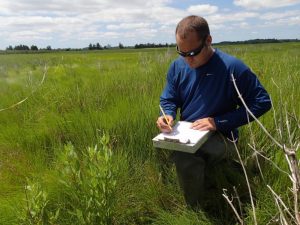
In June of this year, one of the largest marsh restoration projects on the east coast began at the Prime Hook National Wildlife Refuge located in Milton, Delaware. This $38 million project, which focuses on building storm and sea level rise resiliency back into the natural landscape and creating habitat for birds, will repair breached marshes and reconstruct damaged shorelines to 4,000 acres of tidal marsh.
The first phase of the project involved dredging out the historic tidal channels to restore natural wetland hydrology and reusing the dredged material to increase elevation of the Prime Hook marshes. Higher marsh elevation combined with lower water levels will effectively create suitable habitat for marsh plants and animals to re-colonize and thrive.
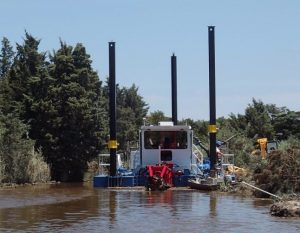
There are many partners involved in this ground-breaking project, and we were lucky enough to be one of them. Our program, in conjunction with the U.S. Fish and Wildlife Service, was responsible for monitoring the Prime Hook marshes before the restoration began. The sampling efforts documented the elevation, types of plants present, plant percent cover and biomass, and stability of the ground at preselected points across the marsh. In the future, this information will be used as baseline data, or a starting point, to track changes in the marsh community.
The second phase of the project is scheduled to begin in October and will fill holes created from hurricanes and storms in over a mile of dunes. The dunes will then be planted with beach grasses and shrubs to hold the sand in place.
For more information and updates about this project please visit the Prime Hook National Wildlife Refuge website.
Written on: July 15th, 2015 in Education and Outreach
By Brittany Haywood, DNREC’s Wetland Monitoring and Assessment Program
Delaware is host to roughly 320,000 acres of wetlands that vary in salinity, soil type and vegetation. Since the early 1700’s, Delaware has lost 1/2 of its wetlands and they continue to be lost or degraded at an alarming rate.
There is a healthy network of groups around the state dedicated to studying, protecting and improving wetlands for future generations of Delaware residents and visitors. This network includes state, county, federal, private, non-profit and academic groups.
The new 2015 Delaware Wetlands Management Plan identifies and prioritizes areas where information or collaborative action is needed to protect Delaware’s wetlands. Based on the advice of the network, seven goals to develop an effective and efficient wetland program have been identified.
As steps are made towards achieving these goals, Delaware will have grown new and more efficient capabilities, strengthened partnerships, reached new audiences and made overall progress towards protecting, enhancing and restoring wetlands. Click here for the complete report.